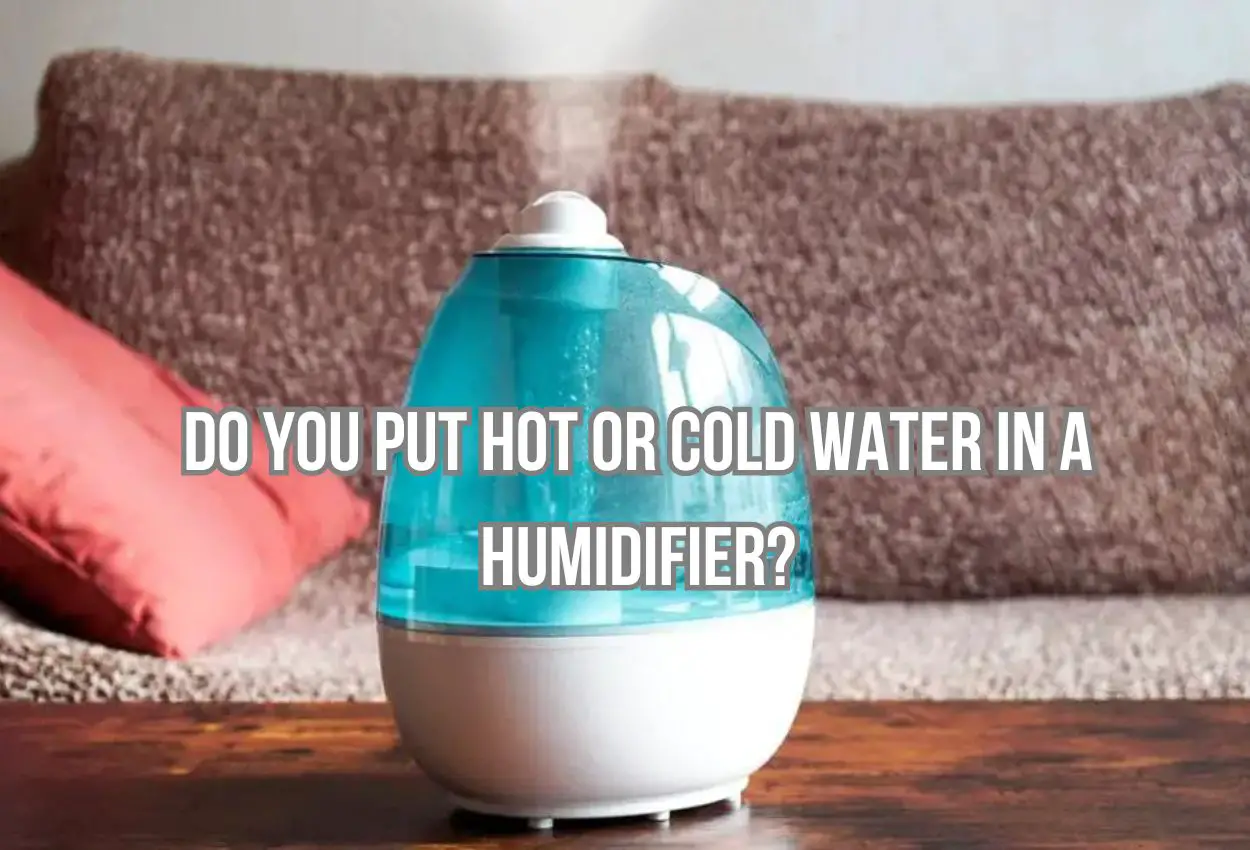Do you put hot or cold water in a humidifier? Humidifiers are popular household devices that help to add moisture to the air, providing numerous benefits for your health and comfort.
They are commonly used during the dry winter months to prevent dry skin, coughs, and sinus problems, among other issues.
However, when it comes to filling a humidifier, many people wonder whether to use hot or cold water.
This is a valid concern, as it could potentially affect the performance and safety of the device.
In this article, we will explore the advantages and disadvantages of do you put hot or cold water in a humidifier, helping you to make an informed decision based on your specific needs and preferences.
Table of Contents
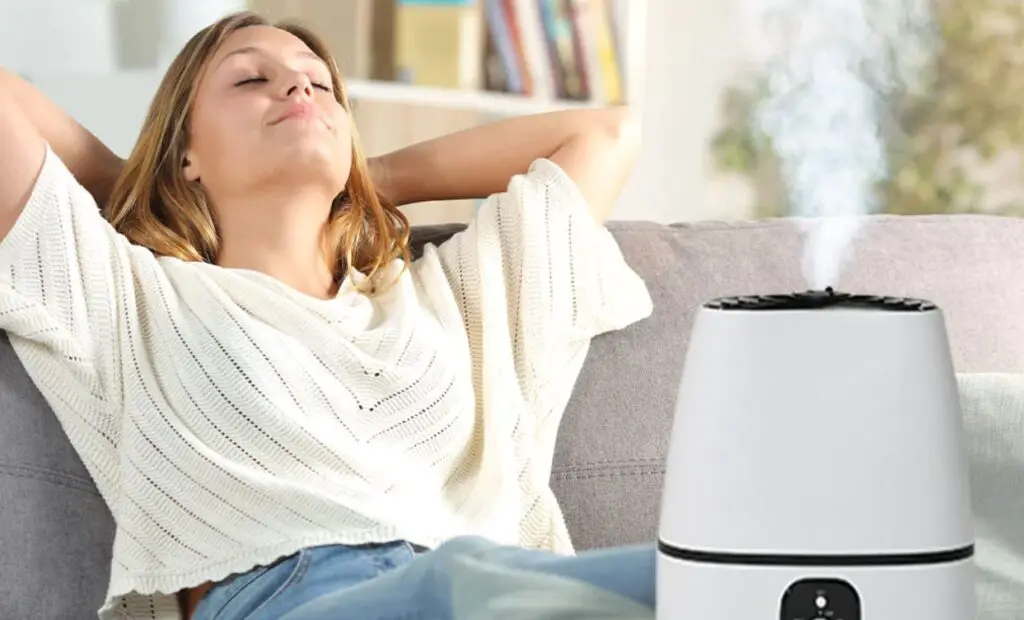
Is it OK to put hot water in a humidifier? Do you put hot or cold water in a humidifier?
Using hot water in a humidifier is not recommended. Most humidifiers are designed to work with cool or room temperature water.
Adding hot water to a humidifier can cause serious damage to the machine and even lead to accidents such as burns or electric shocks.
When hot water is added to a humidifier, it can cause the water tank to crack or warp, leading to leaks and potential electrical problems.
Additionally, hot water can also damage the filter of the humidifier, making it less effective in removing impurities from the air.
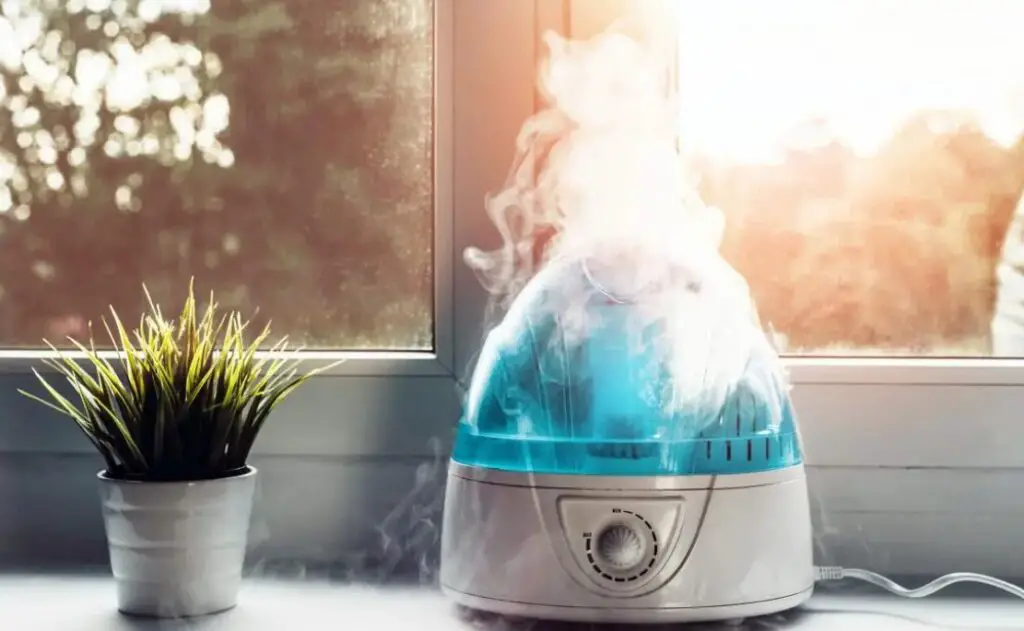
Moreover, using hot water in a humidifier can also create excess humidity in the air, leading to condensation and potentially damaging the walls, floors, and furniture in your home.
Therefore, it is best to stick to cool or room temperature water when using a humidifier.
If you want to increase the humidity level in a specific room, you can try placing a bowl of water near a heat source or taking a hot shower, as these methods are safer and more effective.
Cons of Using Hot Water In a Humidifier:
Increased Risk of An Accident
Using hot water in a humidifier is not only bad for the device itself, but it can also increase the risk of accidents.
Hot water can cause burns or electric shocks, which can be dangerous, especially if the humidifier is located near children or pets.
When hot water is added to a humidifier, the steam it produces can also be hotter than normal, causing burns or skin irritation if it comes into contact with the skin.
This can be particularly dangerous for young children or people with sensitive skin.
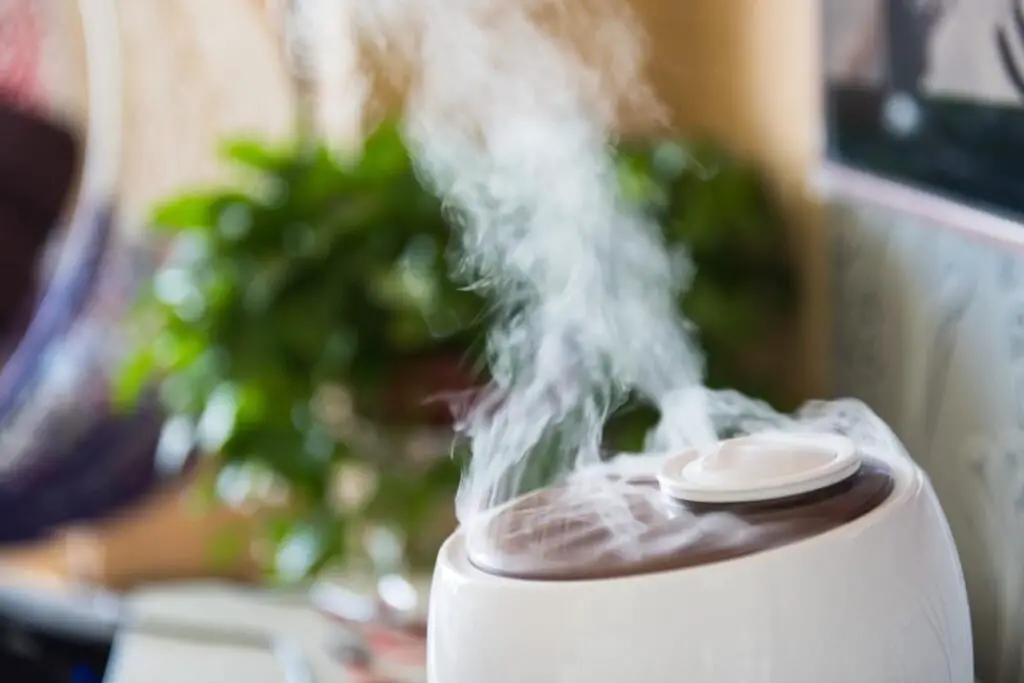
Additionally, the hot water can also increase the risk of electrical accidents. When water is heated, it can create pressure and potentially cause the water tank to crack or warp, leading to leaks and electrical problems.
This can be hazardous if the humidifier is left unattended or if someone tries to touch the device while it is on.
Moreover, using hot water in a humidifier can also create excess humidity in the air, leading to condensation and potentially damaging the walls, floors, and furniture in your home.
In conclusion, using hot water in a humidifier can not only cause damage to the device itself but also increase the risk of accidents.
Can Damage the Device
Using hot water in a humidifier can have negative effects on the device itself. Most humidifiers are designed to work with cool or room temperature water, and using hot water can cause damage to the machine and potentially reduce its effectiveness.
One of the most common issues with using hot water in a humidifier is that it can cause the water tank to crack or warp.
This can lead to leaks and potentially damage the device’s motor or electrical components.
Over time, this can cause the device to malfunction or stop working altogether, requiring costly repairs or replacement.
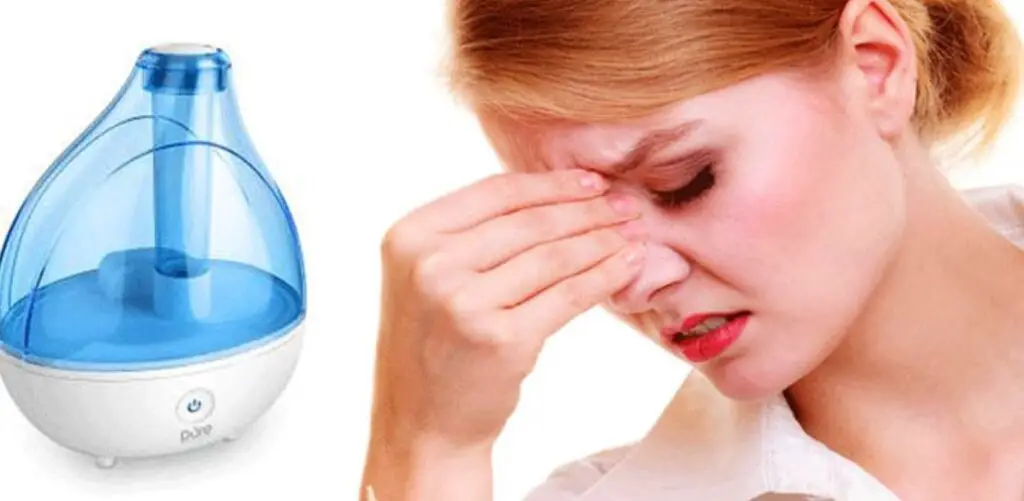
Additionally, hot water can also damage the filter of the humidifier, making it less effective in removing impurities from the air.
The filter can become clogged or damaged, reducing the device’s ability to produce clean, healthy air.
Moreover, using hot water in a humidifier can also create excess humidity in the air, leading to condensation and potentially damaging the walls, floors, and furniture in your home.
In conclusion, using hot water in a humidifier can cause damage to the device itself, potentially reducing its effectiveness and lifespan.
It is best to use cool or room temperature water to ensure the longevity and optimal performance of your humidifier.
Can Be Unhealthy
Using hot water in a humidifier can also have negative effects on your health. Hot water can increase the growth of bacteria and other harmful microorganisms in the water tank, which can then be released into the air and potentially cause respiratory problems or other health issues.
Moreover, using hot water in a humidifier can also create excess humidity in the air, leading to condensation and potentially promoting the growth of mold and mildew in your home.
This can further exacerbate respiratory problems and allergies, causing discomfort and potential health hazards.
In conclusion, using hot water in a humidifier can have negative effects on your health, potentially promoting the growth of harmful bacteria and microorganisms, as well as mold and mildew.
It is best to use cool or room temperature water to ensure the safety and health of yourself and those around you.
Can You Put Hot Water in A Cool-Mist Humidifier?
It is not recommended to put hot water in a cool-mist humidifier. These types of humidifiers are specifically designed to work with cool or room temperature water, and using hot water can potentially damage the device, reduce its effectiveness, and increase the risk of accidents.
Moreover, using hot water in a cool-mist humidifier can also promote the growth of harmful bacteria and microorganisms, as well as mold and mildew, which can be detrimental to your health and the air quality in your home.Therefore, it is best to follow the manufacturer’s instructions and use cool or body temperature water when filling a cool-mist humidifier, ensuring the safety and effectiveness of the device while promoting a healthy and comfortable environment in your home.
Can You Put Hot Water in A Warm Mist Humidifier? Do you put hot or cold water in a humidifier?
Yes, you can put hot water in a warm mist humidifier. Warm mist humidifiers are designed to heat the water before emitting it as hot steam, so using hot water can actually improve their effectiveness and help maintain a comfortable level of humidity in your home.
However, it is still important to follow the manufacturer’s instructions and not exceed the recommended water temperature for your particular warm mist humidifier.
Using water that is too hot can potentially damage the device or increase the risk of accidents.
In conclusion, it is safe to put hot water in a warm mist humidifier, as long as you follow the manufacturer’s instructions and ensure the water temperature is appropriate for your particular device.
Benefits Of Putting Cold Water in A Cold Mist Humidifier
Using cold water in a cold mist humidifier can have several benefits. These types of humidifiers are designed to emit cool mist into the air, so using cold water can actually improve their effectiveness and help maintain a comfortable level of humidity in your home.
Moreover, using cold water can help prevent the growth of harmful bacteria and microorganisms in the water tank, ensuring that the mist produced is clean and healthy to breathe.
This can be particularly important for people with allergies or respiratory problems, who may be more minerals sensitive to airborne irritants.

Additionally, using cold water in a cold mist humidifiers can also help reduce energy consumption, as the device does not need to heat the water before emitting it as mist.
This can save money on your electricity bill and reduce your carbon footprint.
In conclusion, using cold water in a cold mist humidifier can provide several benefits, including improved effectiveness, cleaner and healthier mist, and reduced energy consumption.
It is important to follow the manufacturer’s instructions and regularly clean the device to ensure optimal performance and longevity.
What kind of water should be used in a humidifier?
The type of water that should be used in a humidifier depends on the type of humidifier you have.
Generally, cool mist humidifiers should be filled with cool or room temperature water, while warm mist humidifiers can be filled with either cold or hot water.
It is recommended to use distilled or demineralized water in a humidifier, as tap water can contain mineral buildup and other impurities that can build up in the device over time, potentially reducing its effectiveness and lifespan.

Moreover, using tap water can also promote the growth of harmful bacteria and microorganisms in the water tank, which can be released into the dry air and potentially cause respiratory problems or other health issues.
In conclusion, it is best to use distilled water or demineralized water in a humidifier, following the manufacturer’s instructions and ensuring the appropriate water temperature for your particular device.
Regular cleaning and maintenance can also help ensure optimal performance and longevity.
Conclusion: Do you put hot or cold water in a humidifier?
Do you put hot or cold water in a humidifier? While both hot and cold water can be used in humidifiers, each has its advantages and considerations. Remember, following the manufacturer’s instructions is crucial for safe and efficient use, ensuring your humidifier serves its purpose effectively without causing any harm. Experimenting with different water temperatures can help determine what works best for your specific needs and the humidifier type you’re using.
FAQ: Do you put hot or cold water in a humidifier?
What temperature water do you put in a humidifier?
The temperature of water you should put in a humidifier depends on the type of humidifier you have. Cool mist humidifiers should be filled with cool or room temperature water, while ultrasonic cool mist humidifier can be filled with either cold or hot or cold water, as long as the water temperature does not exceed the manufacturer’s recommended maximum temperature. It is important to follow the manufacturer’s instructions and use distilled or demineralized water to ensure optimal performance and avoid potential damage to the device. Read also…
Is warm or cold better for humidifier?
A warm mist humidifier is often preferred for easing congestion or providing warmth in a room, while a cool mist humidifier is better for general use, especially in households with kids or pets as it doesn’t pose the risk of burns. Ultimately, the choice depends on personal comfort and needs.
What water do you put in a humidifier?
Using distilled or demineralized water is generally recommended for humidifiers to prevent mineral buildup, which can affect the unit’s performance and reduce the release of impurities into the air. Tap water can be used, but it might contain minerals that can create deposits over time.
Can I put ice water in a humidifier?
It’s not advisable to use ice water in a humidifier. Cold water can lower the temperature around the humidifier, potentially causing condensation or damaging the unit’s components. Room temperature or slightly warm water is typically recommended for humidifiers.
Does boiling water humidify the air?
Boiling water can increase humidity temporarily in a small area, but it’s not an effective way to humidify a larger space. Boiling water in an open container can add moisture to the immediate vicinity but won’t significantly impact the overall humidity of a room.

